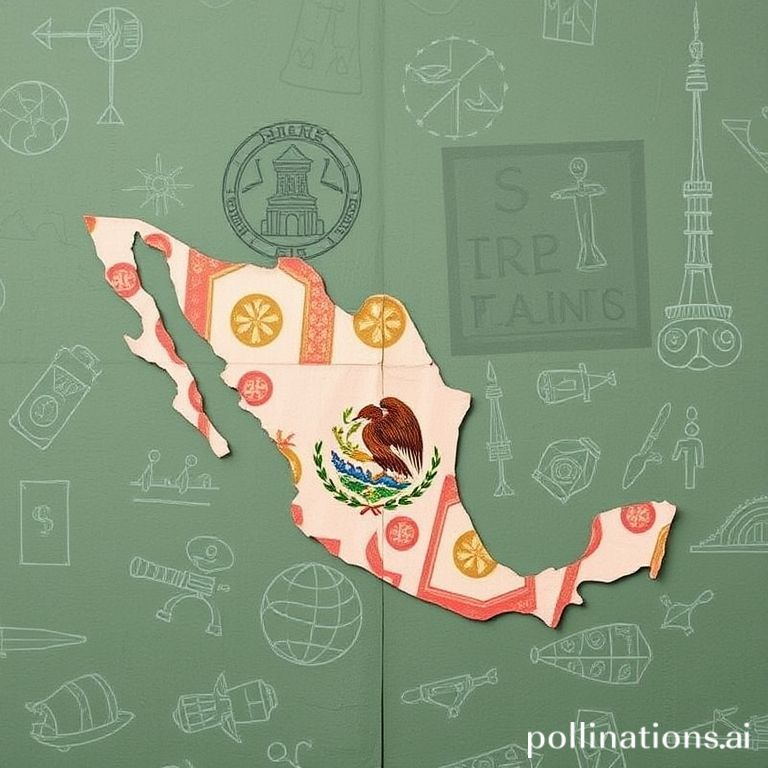Moving to a new country is an exciting adventure, filled with new experiences and opportunities. However, it also comes with its own set of challenges, particularly when it comes to managing your finances. Mexico, with its vibrant culture and stunning landscapes, is a popular destination for expats and retirees. Successfully navigating the financial landscape here requires careful planning and understanding of the local system. This article will provide a practical guide to help foreigners manage their finances effectively in Mexico.
Opening a Bank Account
One of the first steps to managing your finances in Mexico is opening a local bank account. This simplifies many transactions, from paying bills to receiving payments. Here’s what you need to know:
Requirements
- Passport and Visa: You’ll need a valid passport and your residency visa (temporary or permanent).
- Proof of Address: A utility bill (water, electricity, or phone) in your name is usually required. If the bill is not in your name, a letter from the homeowner stating that you live there may suffice.
- CURP: If you have a temporary or permanent resident visa, you’ll likely have a CURP (Clave Única de Registro de Población), which is your unique Mexican identification number.
- Minimum Deposit: Most banks require a minimum initial deposit to open an account.
Choosing a Bank
Several reputable banks operate in Mexico, including:
- BBVA Bancomer: One of the largest banks in Mexico with extensive branch networks and ATMs.
- Citibanamex: Another major player offering a wide range of services.
- Santander: A global bank with a strong presence in Mexico.
- HSBC Mexico: Part of the international HSBC group.
- Banco Azteca: Known for its accessibility and longer operating hours.
Consider factors such as branch locations, ATM availability, online banking services, fees, and customer service when making your decision.
Understanding the Mexican Peso (MXN)
Familiarize yourself with the local currency, the Mexican Peso (MXN). Keep track of the exchange rate, as it can fluctuate. Several resources can help you monitor the exchange rate:
- Online Converters: Websites like XE.com provide real-time exchange rates.
- Bank Websites: Most bank websites offer current exchange rate information.
- Mobile Apps: Currency converter apps can be useful for quick calculations on the go.
Be aware of common scams involving currency exchange, such as counterfeit bills or unfavorable exchange rates offered by unofficial vendors. Always use reputable banks or exchange houses (“casas de cambio”).
Budgeting and Expense Tracking
Creating a budget is crucial for managing your finances effectively. Start by tracking your income and expenses. Here are some tips:
Tracking Methods
- Spreadsheets: Use a spreadsheet program like Microsoft Excel or Google Sheets to record your income and expenses.
- Budgeting Apps: Several mobile apps, such as Mint or Personal Capital, can help you track your spending automatically.
- Notebook: A simple notebook can also be effective for manually recording your transactions.
Key Expense Categories
Common expense categories in Mexico include:
- Rent or Mortgage: Housing costs can vary widely depending on location.
- Utilities: Electricity, water, gas, and internet.
- Groceries: Food costs can be lower than in some Western countries, especially if you shop at local markets.
- Transportation: Public transportation, taxis, or car expenses.
- Healthcare: Health insurance and medical expenses.
- Entertainment: Dining out, activities, and travel.
Paying Bills
Paying bills in Mexico can be done in several ways:
- Online Banking: Most banks offer online banking services that allow you to pay bills electronically.
- Bank Branches: You can pay bills in person at bank branches.
- Convenience Stores: Some convenience stores, like OXXO and 7-Eleven, allow you to pay certain bills.
Set up automatic payments where possible to avoid late fees. Keep records of all your payments.
Taxes
Understanding the Mexican tax system is essential, especially if you are earning income in Mexico. Consult with a tax professional to ensure you comply with all regulations. Key points include:
- Income Tax (ISR): If you are employed in Mexico, your employer will deduct income tax from your salary.
- Property Tax (Predial): If you own property in Mexico, you will need to pay property tax annually.
- Value Added Tax (IVA): A consumption tax added to most goods and services.
Conclusion
Managing your finances as a foreigner in Mexico requires careful planning and a willingness to adapt to the local system. By opening a local bank account, understanding the currency, budgeting effectively, and staying on top of your taxes, you can navigate the financial landscape with confidence. Remember to seek professional advice when needed and stay informed about changes in regulations. With the right approach, you can enjoy a financially secure and fulfilling life in Mexico.
If you enjoyed this article, don’t forget to explore more inspiring stories on Life in Mexico!
IMAGE: A brightly lit, inviting scene inside a Mexican bank. An expat is sitting at a desk, smiling and talking to a friendly bank employee. The bank is modern and clean, with the bank’s logo subtly displayed in the background. The overall mood is positive and reassuring, using warm colors like gold and brown to convey trust and stability. The style is realistic and informative.


